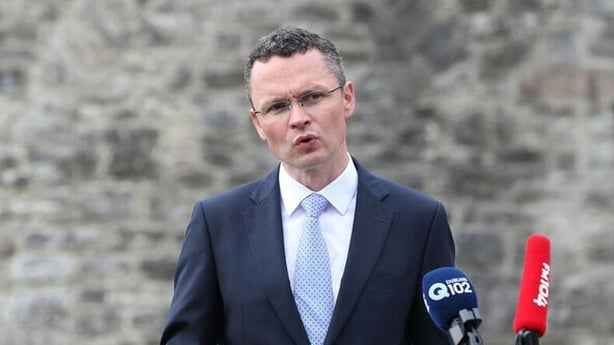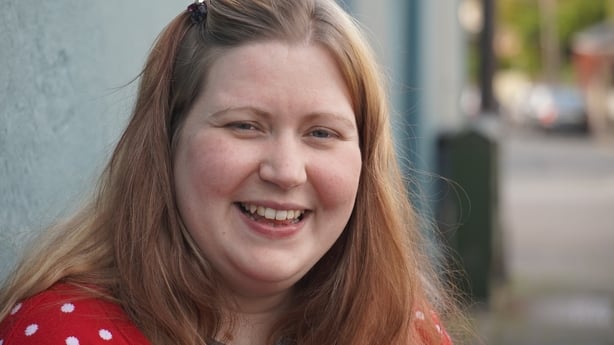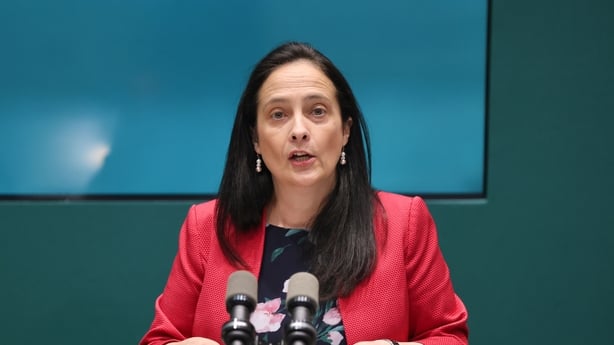The last year or two has seen endless column inches devoted to the so-called 'Green Wave’, a movement apparently kick-started by the success of The Banshees of Inisherin that has seen Irish artists of all disciplines dominating global culture.
Whether it’s a recent development or not remains up for debate, but many have pointed to the fact that our continuing success as a nation - not only in the last year or two, but across the decades - has been largely down to our artists receiving support and funding from public sector bodies like the Arts Council, Screen Ireland and Comisiún na Meán.
However, the Arts Council is the latest organisation to have been hit by controversy about overspending in recent times: it’s not just bike sheds, walls and childrens’ hospitals that have racked up eye-wateringly extravagant bills.

New Arts Minister Patrick O’Donovan, who took over the role from the well-liked Catherine Martin in January, has inherited more than one headache in his new job. Within weeks of his nameplate being installed on the door, it emerged that the Arts Council had spent almost €7 million on the unsuccessful implementation of an IT system. After the Comptroller and Auditor General (the state financial watchdog) had uncovered the whopping overspend, the Arts Council said in a statement that the new system for grant applications was deemed necessary as "ageing online systems were presenting challenges and required improvement", but admitted that the project was not delivered and ultimately had to be written off.
We need your consent to load this rte-player contentWe use rte-player to manage extra content that can set cookies on your device and collect data about your activity. Please review their details and accept them to load the content.Manage Preferences
Listen: The Late Debate on RTÉ Tadio 1 discuss the Arts Council IT story
O’Donovan responded in fire-and-brimstone language that ranged from "very, very annoyed" to "very angry". Taoiseach Micheál Martin agreed, calling it a "very serious" transgression and Minister for Finance Paschal Donohoe said that he was "extremely concerned" about the overspend. The government has since ordered an external review into governance and culture at the organisation, which will focus on corporate governance, procurement, contracts with third parties and project management, amongst other elements. A timeline has not yet been announced for its completion, but in a statement O’Donovan pointed out how funding for the Arts Council had increased by 75% in recent years to €140m in 2025" and that he wished "to restore trust and confidence" in the agency. For a body that is so crucial to our collective sense of cultural pride, however, it has left a bad taste in many people’s mouths - and has also led to fears that such a massive faux-pas will have a trickle-down effect when it comes to funding for artists at ground level.
We are no strangers to political controversy in Ireland, but the arts have always been tightly bound to our sense of identity.
In a further case of bad timing for the organisation, reports also emerged last week that it had given over €36,000 in grants to a woman who had used multiple fake names. Samantha Cookes, who has a previous conviction for fraud in the UK and last week admitted to deception and theft of social welfare payments for four years, had been awarded €15,000 in 2021 for a literature bursary using the name Jade Cooke. The following year, she was awarded a further €21,250 for another English-language literature project using the same name. The Arts Council said they "cannot comment on funding decisions" but most would agree that it’s really not a good look in the immediate aftermath of a very public financial embarrassment - and are perhaps wondering how often this may have happened over the years.

podcast series The Real Carrie Jade
It’s been an interesting first month in the job for O’Donovan, to say the least. Hot on the heels of the Arts Council IT overspend scandal came another earlier this week - this time, involving a scanner. This was no ordinary scanner, however; the hi-tech X-ray scanner was purchased for the princely sum of €124,000 by the National Gallery eight years ago. However, it has languished unused since then, as it requires a lead-lined room to operate - which the National Gallery does not have.
We need your consent to load this rte-player contentWe use rte-player to manage extra content that can set cookies on your device and collect data about your activity. Please review their details and accept them to load the content.Manage Preferences
Listen: News At One on the National Gallery's unused scanner
When O’Donovan revealed the news to the Dáil, Sinn Féin’s Mary Lou McDonald was quick to draw parallels with another piece of unused equipment - the infamous Oireachtas printer - which you may remember cost €800,000 when it was bought in 2018, but was too large to fit in the building. (Don’t worry - it was eventually operational, although it cost another €200,000 to ensure it fit. A small price to pay for the title of ‘Most Famous Printer in Ireland.’) How much more will this scanner cost the Irish taxpayer to be fully operational? It’s anyone’s guess. Scannergate saw O’Donovan once again reach for his thesaurus in a bid to find new words for ‘disappointing’ or ‘infuriating’: this time, it was "a cause of great dissatisfaction" that a grant had been awarded for the inoperative machine, agreeing that the recent blips across his department had been a "source of huge embarrassment."

Oh, but that’s not all. The latest arts-related organisation to court controversy, although one funded by the Department of Enterprise rather than Arts, is the Design & Crafts Council Ireland. Last week, it was revealed that the council was allegedly threatening to sue one of its members, the well-known glassmaker Róisín de Buitléar, because of a ‘feedback report’ that she had sent following her involvement in Collect - a prestigious international fair, held at London’s Somerset House, which allows contemporary craft and design artists to showcase their work.
Following last year’s event, de Buitléar was one of 21 of the 23 participating Irish artists who had signed their name to a feedback report which criticised various elements of the DCCI and its organisation of Collect. According to a report in The Irish Times, the DCCI is now threatening legal action against de Buitléar - who was responsible for emailing the reports to the council’s board, chairman, chief executive and head of design - claiming that the report "[impugns] its reputation and ability to host international events of this calibre". Many artists have voiced concern for what they consider a bid to silence them, solely because they offered what they considered constructive feedback to the DCCI.
We are no strangers to political controversy in Ireland, but the arts have always been tightly bound to our sense of identity. Hopefully, Irish arts will manage to weather this storm and avoid losing both crucial governmental support and public goodwill in a time of increasingly difficult financial times for many.
The views expressed here are those of the author and do not represent or reflect the views of RTÉ


